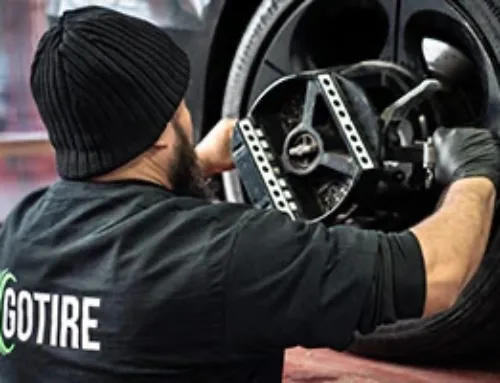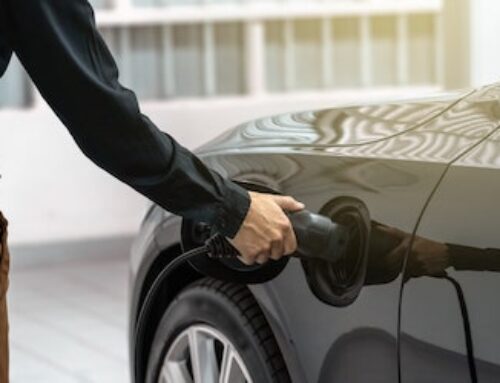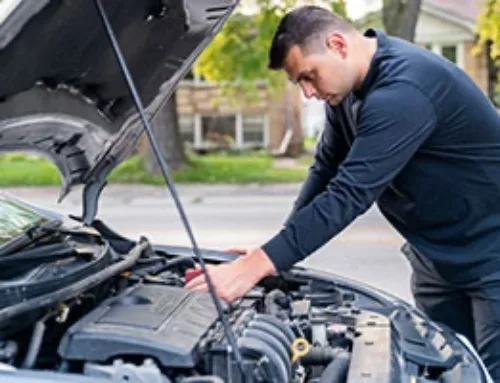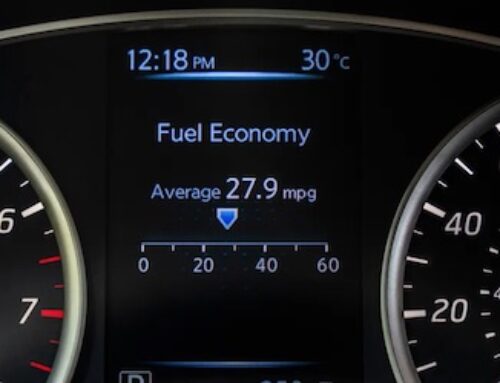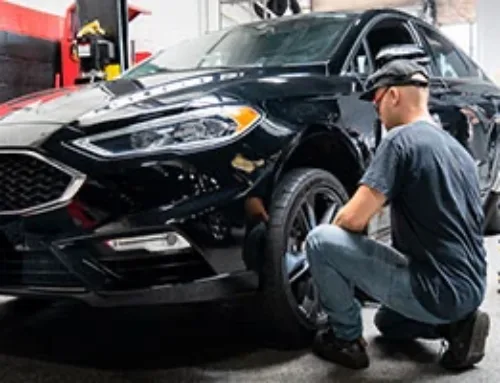Table of Contents
- What are car air filters, and why are they important?
- Car engine air filter vs. cabin air filter: what’s the difference?
- What are the signs that my car’s air filters need to be replaced?
- How often should I replace the air filters?
- 3 key benefits of the air filter replacement
- Can I perform the air filter replacement myself?
- Types of air filters
- Frequently Asked Questions
The air filter plays an important role in the car’s optimal performance. A clean air filter improves fuel efficiency and acceleration, lowers emissions, and increases engine life. The frequency of replacing air filters? Many factors—from driving conditions and the filter type—determine it. This Guide covers all the peculiarities of the car’s air filter change that every driver needs to know. Read on, and don’t forget to replace the air filter in time!
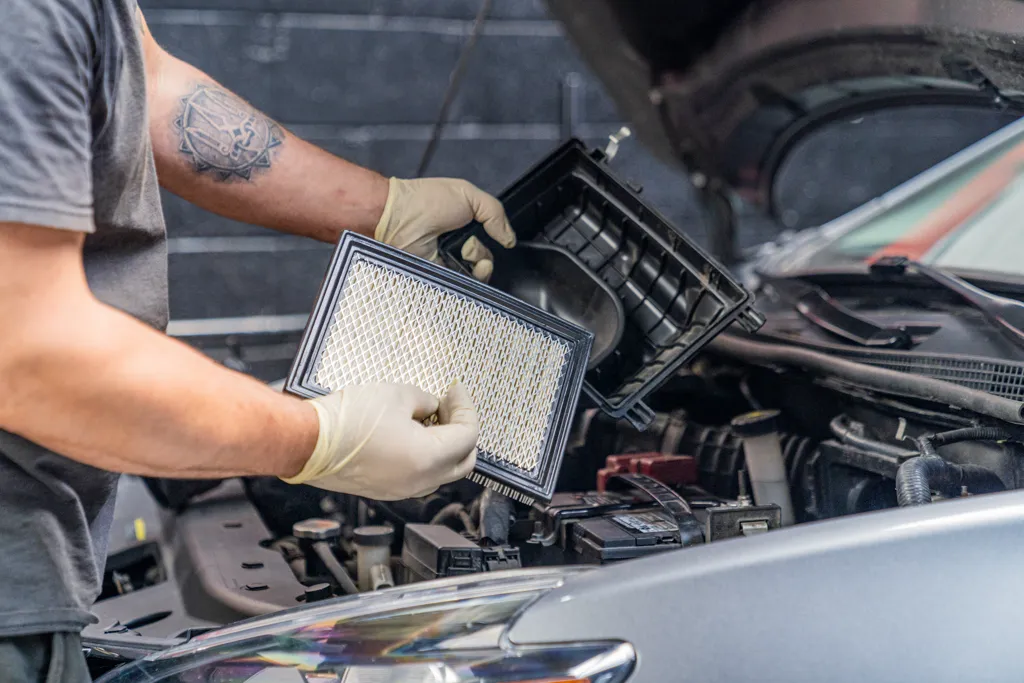
What are car air filters, and why are they important?
Daily commuting, spending hours in heavy traffic, driving on unpaved roads, over sand or gravel, seasonal pollen—everything that contains pollutants goes inside your car. This is when the car’s air filters come in place: they protect the engine and the cabin from all airborne contaminants. Timely installing a new filter is an essential maintenance act that affects the car’s performance and the comfort of the driving environment. There are two air filters in every vehicle:
- The cabin air filter
- The engine air filter
Let’s explore their roles and why we must avoid driving with a clogged air filter.
Car engine air filter vs. cabin air filter: what’s the difference?

Air filters for engines help protect the motor from damage induced by outside contaminants. A bad engine air filter affects vehicle performance and the quality of the car’s drive—it will slow the acceleration and increase fuel consumption. That’s why you should monitor your engine filter and check its condition regularly. A cabin filter is essential to your vehicle’s ventilation system and helps to keep a passenger compartment free of pollen, dust, and harmful air pollutants. In the long run, cabin filters can clog from the dirt and debris impacts, worsening cabin air conditions. Change the air filter to avoid that. Timely changing a dirty air filter is one of your vehicle’s most essential maintenance tasks. Let’s see when it’s time for a new air filter replacement.
What are the signs that my car’s air filters need to be replaced?
Your car has a few signs of needing to replace its air filter. The unpleasant smell in the cabin, the overall quality of the air in your car, the interior being extremely dusty, the engine noise, the increased emissions, ignition problems, sluggish acceleration—are the warning signs of the air filter not functioning correctly. Usually, air filters need replacement as quickly as possible if you have noticed one of these signs.
Reduced airflow from vents

Clogged air filters will block incoming air through the hood and hinder the car’s flow of heat or cold. If there are leaks from your air duct, it may be because of the dirty cabin air filter that needs replacing.
Engine noises
You know the feeling of the engine running smoothly: its sound is steady and rhythmic. Just as we start coughing when something’s wrong with the air quality, the engine will start making weird noises because of the blocked airflow. Paying attention to this factor is essential in air filter maintenance.
Decreased engine performance
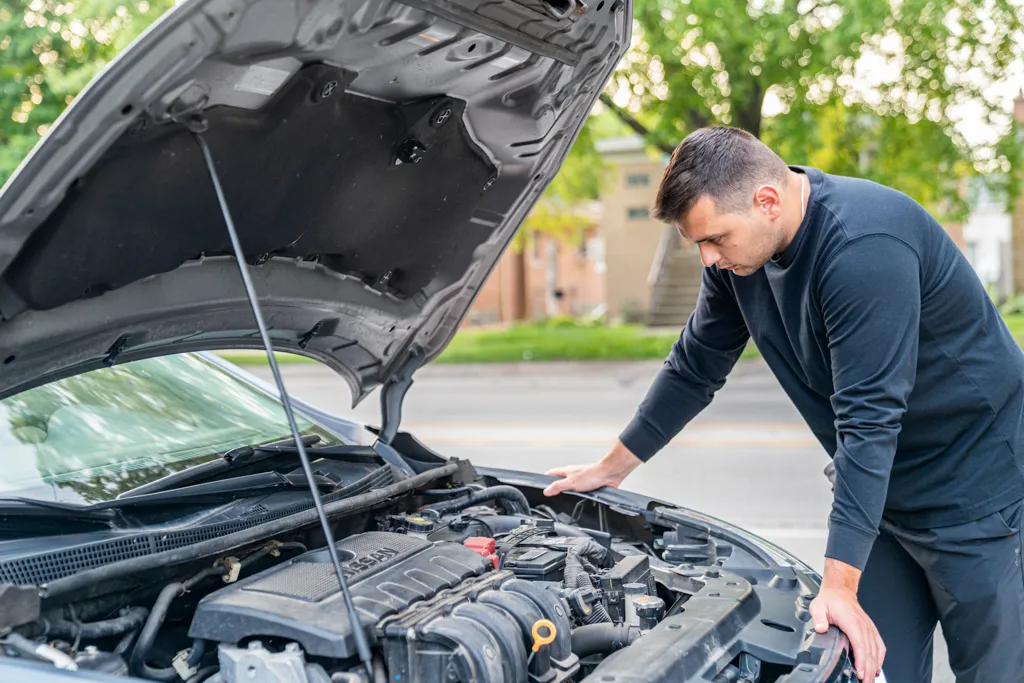
Your engine requires a large amount of air for proper combustion. A dirty engine air filter can result in sluggish acceleration and overall decreased performance. If you notice any changes, it might be time for a replacement.
Increased fuel consumption
Have you noticed spending more money on gas? Lower amounts of oxygen in the air that comes into your engine will decrease fuel efficiency because it will need more power to run smoothly.
Black smoke from the exhaust pipe
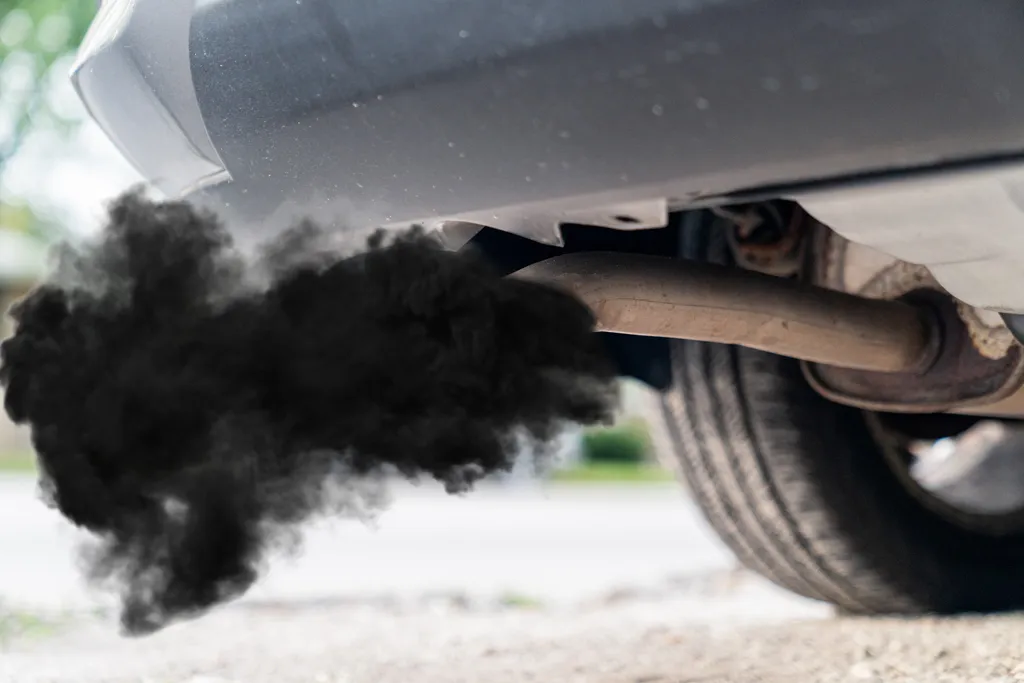
This is the sign of a dirty air filter. As with the other engine problems, the reason is low air supply: if it happens, the fuel mixture doesn’t completely burn before coming out of the exhaust. Change the dirty engine air filter asap to eliminate the problem.
Visible dirt and debris
Clean air filters are usually white, whereas the dirty ones will be grey or dark brown. Visually inspect both the engine air filter and the cabin air filter, and you will easily spot dust and dirt that affect their performance. Put it simply: the dirty filters need replacement.
How often should I replace the air filters?
Every 12,000 miles, or every 365 days—is the optimal timeframe for the vehicle’s air filter replacement. But if you notice any of the above signs, you may want to change them earlier. The frequency of your vehicle usage also affects the air filter’s lifespan. When you often travel far or use the car daily, the filters accumulate dust and other contaminants faster. Timely air filter maintenance is extremely important for proper vehicle performance.
3 key benefits of the air filter replacement
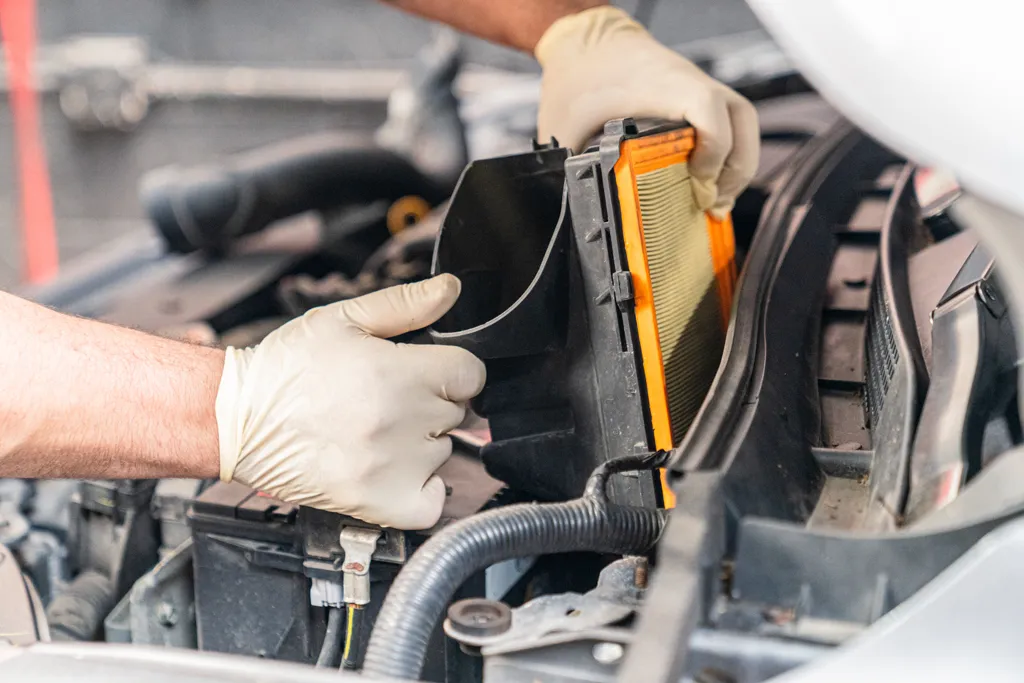
1. Enhanced engine performance
Clean filters ensure engine air quality and can enhance performance. This ensures that the engines need enough oxygen for combustion and more efficient acceleration, as reflected by a more efficient performance.
2. Improved fuel efficiency
Clean filters can restrict airflow and make the engine more likely to use more fuel. The air filter is replaced periodically to ensure the engine receives clean air, increasing fuel savings and reducing pump costs.
3. Healthier cabin environment
Air filters help reduce exhaust emissions in your car’s cabin. They prevent dust particles and other airborne contaminants from getting into your cabin via air filtration systems. Regularly replacing the air filter definitely creates a healthier cabin environment.
Can I perform the air filter replacement myself?
Compared to many other car maintenance processes, this one is super straightforward, and you can regularly replace the filter yourself. The exact procedure will differ from vehicle to vehicle—so always check your car owner’s manual before performing it. The cabin filters are located behind the car’s glove compartment and may be removed with a simple opening of the cover panel. Simply change the dirty filter to a new one. When replacing the engine air filter, check your car owner’s manual for exact directions. Locate the air filter housing in the car—usually, it is in a black plastic box near the motor. Open up this box, remove the filter, and check the space around it. If contaminants are in the lining, the filter must be replaced/cleaned, and the space around it cleaned.
Types of air filters
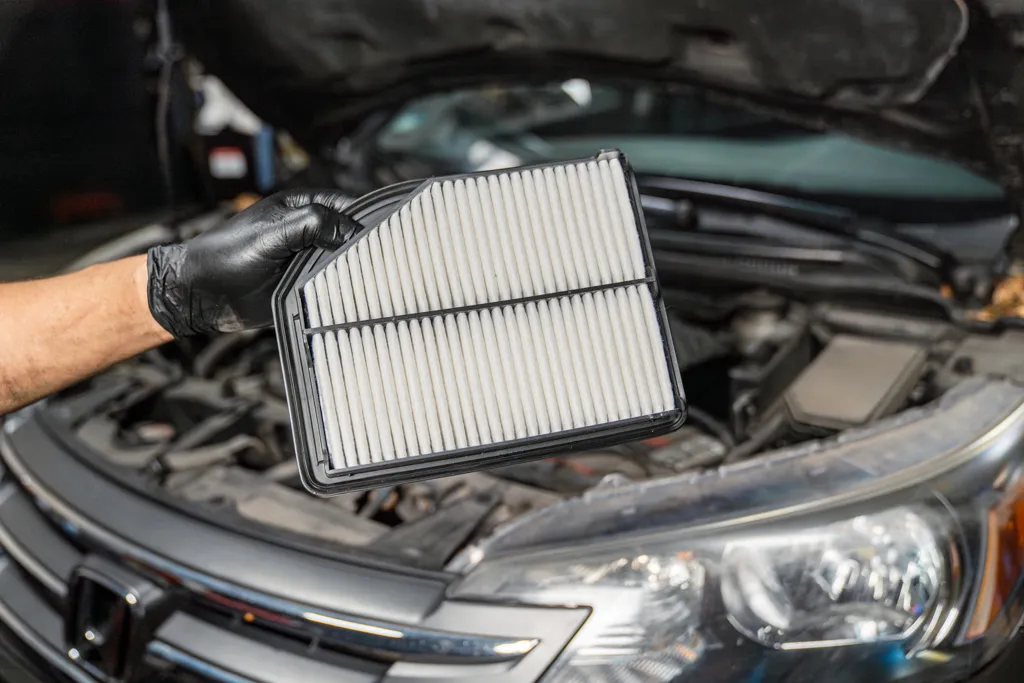
A filter’s performance is measured by its ability to trap or remove air particles. We recommend installing filters with high filter efficiency ratings to provide cleaner and more efficient combustion engines. You will choose between paper, gauze, and foam filters.
- Paper filters are the most popular and cost-effective, but they are mostly suitable for small cars that cruise in low-contaminated environment areas.
- Gauze/cotton filters are cleanable and long-lasting—choose the oiled ones for better filtration.
- Foam filters are the most expensive and are often used in high-performance and racing vehicles because of their high filtration capacities.
Frequently Asked Questions
How much does an air filter cost?
$15-25 is the price range for the simple kind, and you can expect to pay as much as $100 for a quality foam filter. The price will depend on the type of air filter and the make, year, and model of your car.
What happens if you don’t change air filters in the car?
Regular replacement of car air filters is essential for ensuring good airflow and protecting the engine and the cabin from dangerous contaminants. Using faulty filters or not replacing/cleaning them in time can reduce engine performance and increase fuel consumption and overall vehicle performance.
Does the air filter quality affect its lifespan?
Yes. The quality of the car’s air filter affects its lifespan. High-quality filters are built to last and offer improved performance in the filtration process. They increase airflow and environmental contaminants from the cabin and the engine.


